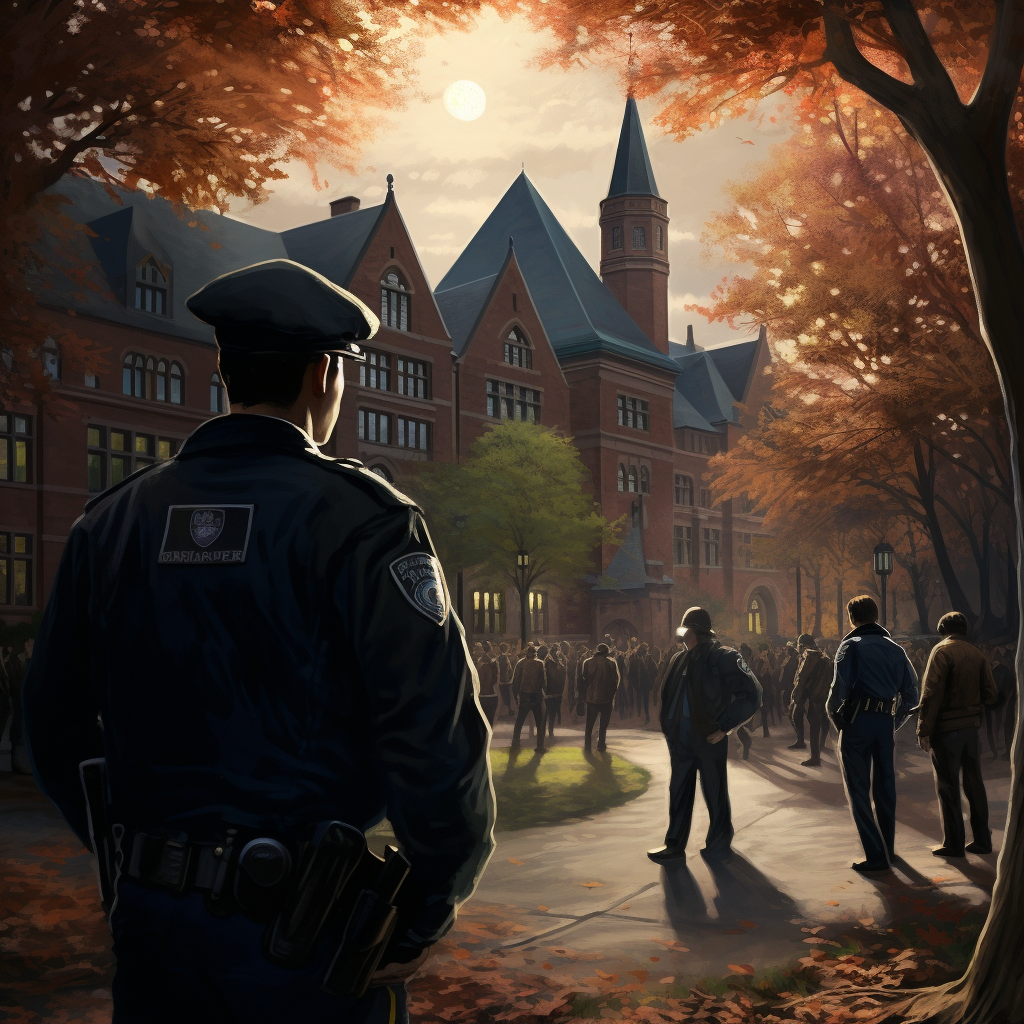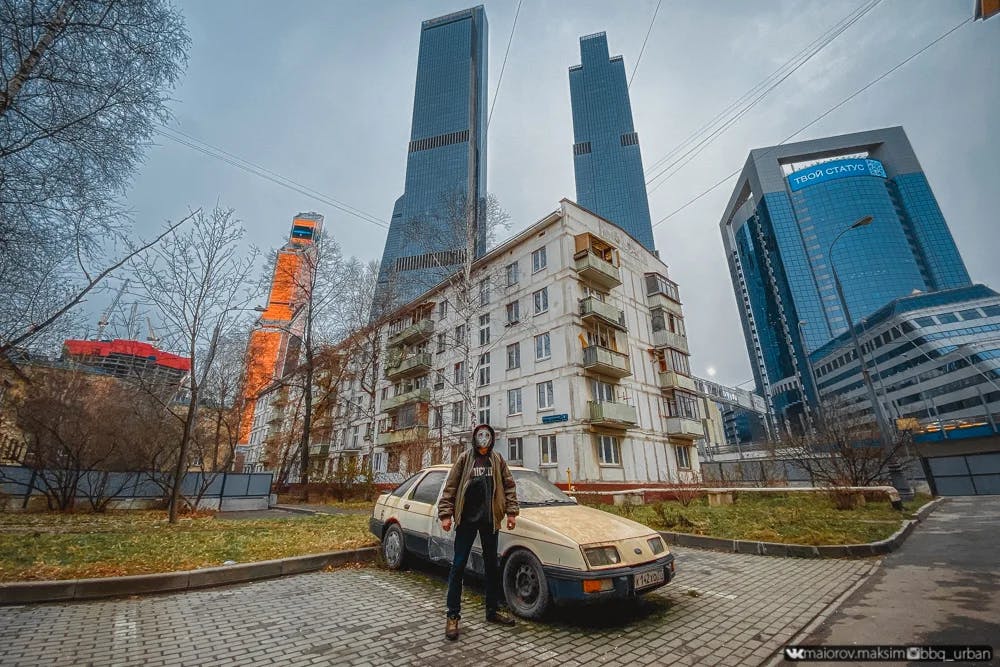How All of Russian TV Became State-Controlled
Short biography of the freedom that never happened.



On the second day of Moscow’s invasion of Ukraine, Russian scientists published an open letter against the war which was subsequently signed by 8,500 people. Since then, the ongoing process of Russian academics fleeing abroad has grown tremendously. The lack of financial support for research and development, limited career prospects, and political restrictions have motivated scientists to seek more favourable conditions elsewhere. According to Vice President of the Russian Academy of Sciences Valentin Parmon in the past five years around 50,000 scientists left Russia. Since the beginning of the war, more than 250 scientists have successfully relocated from the country. A staggering number of approximately 6,000 individuals can be found in chat rooms dedicated to facilitating scientific relocation. Over 200 personnel from two prominent Russian universities were either terminated or reassigned to civil contracts due to their failure to align with the war efforts. This lack of support has resulted in the stagnation of entire fields of research, leading numerous scientific and educational institutions to effectively disintegrate.
Throughout Russian history, scientists have left the country due to various reasons. Following the Russian Revolution, approximately 0,9-2 million Russians, including many scientists, emigrated between 1917 and 1922, known collectively as the white émigré or first-wave émigré, who were in opposition to the revolutionary Bolshevik communist political climate. During the Soviet era, thousands of scientists left due to political restrictions and ideological conformity. The collapse of the Soviet Union led to economic challenges, causing around 80,000 scientists to emigrate in the first half of the 90s. In the past five years, approximately 50,000 scientists have left Russia.
There are several ongoing challenges faced by Russian scientists and motivations behind their decisions to seek opportunities abroad:
Limited Support and Funding: In Russia, scientific research and development funding has been a longstanding challenge. Since 2008 the funding for scientific research as a percentage of GDP (1%) has been stagnating for almost 13 years. Although Russia in 2020 ranked 9th in the world in terms of Research and Development expenses, it was 12.1 times behind China and 15 times behind the United States, and the gap is widening. A senior researcher earns an average of 26,000 rubles (about €280) and a professor 36,000 (€390) rubles a month. According to the decree of Vladimir Putin, the salary of scientific workers should be increased to 200% of the average for the region. However, no additional funding has been allocated to achieve this goal. In order to meet the targets set by the President, universities began to transfer scientists to part-time. This was addressed by Anastasia Proskurina, a candidate of Biological Sciences from the Institute of Cytology and Genetics of the Russian Academy of Sciences. During a meeting with Putin, she said that instead of the prescribed 79 thousand roubles, she received 25, and the leadership of the institute, instead of raising salaries, suggested that she go part-time. This lack of financial support has led to difficulties in securing resources and grants for scientists, driving them to seek opportunities in countries with higher research investments.
Political Restrictions, Personal Safety, and Freedom: Political restrictions and ideological pressures in Russia have affected scientific freedom. In the Academic Freedom Index (AFI) 2023, which measures academic freedom globally, Russia's scores have declined from 0.79 to 0.24 (on a scale from 0 to 1) in 1998 in terms of autonomy, freedom of expression, and institutional restrictions. Despite the clearly defined principle of academic freedom encapsulated in the Constitution, specific laws indirectly undermine academic freedom. Among the laws that have restricted academic freedom are the ‘foreign agent law’, penalisation for the rehabilitation of Nazism (a term, as we now know from Russia’s war against Ukraine, does not refer to neo-Nazis as understood in the West), laws on extremism and laws banning ‘disrespect’ for the state and its authorities. Further contributors to Russia’s declining AFI score were the fact that the rectors of federal universities are appointed by the president and the government, the growing links between rectors and Putin’s United Russia party, and the culture of self-censorship. There were at least 14 instances of professors being disciplined or dismissed from their positions. For example, in 2016, Alexei Petrov, deputy dean of the faculty of history at Irkutsk State University, was dismissed because his public engagement was allegedly detrimental to his educational activities. Petrov was anonymously accused of expressing unpatriotic views and neglecting his university obligations. Teaching staff from various leading universities have been the target for layoffs as a result of their views: as Project notes, this type of retaliation has affected employees of the Russian Academy of National Economy and Public Administration, the Higher School of Economics, and Moscow State University. The publication estimates that 20 professors who openly opposed the war have been fired. Overall, the pressure on the universities has taken different forms, including seemingly non-political. For example, the liberal European university in Saint Petersburg had its educational licence revoked following the pressure from the authorities. The rector of another liberal university, RANEPA, faced criminal charges.
Career Prospects: The limited career prospects within the Russian scientific community have contributed to the emigration of scientists. A study conducted by the Russian Presidential Academy of National Economy and Public Administration found that exactly half of the postgraduate students were ready to relocate to get a “good job”. The study’s authors explain the disparity as a twofold effect of better employment opportunities abroad being granted to a higher-educated segment of the population, and fewer employment opportunities at home. The allure of better career prospects, recognition, and opportunities for advancement abroad motivates scientists to pursue their careers outside of Russia.
Better Resources and Infrastructure: Access to advanced research facilities and infrastructure is a crucial factor driving scientists to leave Russia. According to the Nature Index, which ranks institutions based on research output, Russian universities, and research institutions have faced challenges in maintaining competitive positions. In 2023 Russia dropped by 17% in adjusted Share. This, coupled with limited access to cutting-edge technologies and equipment, has prompted scientists to migrate to countries with stronger research infrastructure, such as the United States, Germany, or Switzerland.
International Collaborations and Networking: International collaborations play a significant role in the scientific community. Scientific ties between Russia and other countries began to break during the first days of Moscow's war in Ukraine. For example, the Massachusetts Institute of Technology, the Australian University, and the European Association of Universities, which unites 850 universities, announced the complete cessation of all interaction with Russian organisations. Finland, Germany, Poland, Denmark, and Norway have refused (ru) joint research and education programs. At best, scientific contacts between the West and Russia have been "frozen" indefinitely. "This is very disturbing," Alexander Sergeev, the president of the Russian Academy of Sciences, recently said. The decline in international collaborations can limit opportunities for Russian scientists to engage in global research networks, share knowledge, and access diverse perspectives, further motivating them to seek collaborations abroad.
At the same time, the Russian authorities have been pushing the policy of isolationism from the international scientific community, a call-back of the practices from the Iron Curtain times.
Эта статья еще не переведена. Мы ищем волонтеров, которые могли бы помочь нам с этим.
Short biography of the freedom that never happened.

Russia is seizing the control of academic freedoms of both private and public universities. How does this work? Has any school remained free?

In Russia, stark regional disparities exist, shaped by history, geography, and economics. From thriving urban centres to struggling rural regions, these inequalities demand a comprehensive approach. How did you imagine Russia?

Наша медиаплатформа не существовала бы без интернациональной команды волонтеров. Хотите стать одним из них? Вот список открытых на данный момент вакансий:
Если вы хотите помочь нашему проекту, но не нашли интересующей вас вакансии, дайте нам знать:
Мы рассказываем о текущих проблемах России и ее людей, выступаем против войны и за демократию. Мы стремимся сделать наш контент максимально доступным для международной аудитории.
Хотите ли вы поучаствовать в российском проекте, направленном против войны?
More info for media
Мы хотим, чтобы россиян, выступающих за мир и демократию, услышали. Мы публикуем их истории и берем у них интервью в проекте Ask a Russian.
Вы - россиянин или знаете кого-то, кто хотел бы поделиться своей историей? Пожалуйста, напишите нам. Ваш опыт поможет людям понять, как устроена Россия.
Мы можем опубликовать ваш рассказ анонимно.
Наш проект реализуется силами волонтеров - ни один из членов команды не получает никакой оплаты. Однако, у проекта есть текущие расходы: хостинг, домены, подписка на платные онлайн-сервисы (такие как Midjourney или Fillout.com), реклама.
Номер нашего банковского счета, зарегестрированного в Fio Banka (Чехия), 2702660360/2010. Банковский перевод возможно отправить по реквезитам либо отсканировав QR-код в вашем банковском приложении:




Россия начала войну против Украины. Эта война продолжается с 2014 года. Она только обострилась 24 февраля 2022 года. Страдают миллионы украинцев. Виновные в этом должны предстать перед судом за свои преступления.
Российский режим пытается заставить замолчать либеральные голоса. Россияне, настроенные против войны, существуют, и российский режим всеми силами пытается заставить их замолчать. Мы хотим, чтобы их голоса были услышаны.
Сотрудничество имеет решающее значение. Российские либеральные инициативы порой трудно воспринимаются европейской общественностью. Правовой, социальный и исторический контекст России не всегда понятен. Мы хотим поделиться информацией, навести мосты и соединить либеральную Россию с Западом.
Мы верим в диалог, а не в изоляцию. Оппозиционные силы России не смогут ничего изменить без поддержки демократического мира. Мы также считаем, что диалог должен быть двухсторонним.
Выбор за вами. Гнев, вызванный приступлениями России, понятен. Вам решать, хотите ли вы прислушаться к россиянам, выступающим против войны и режима.